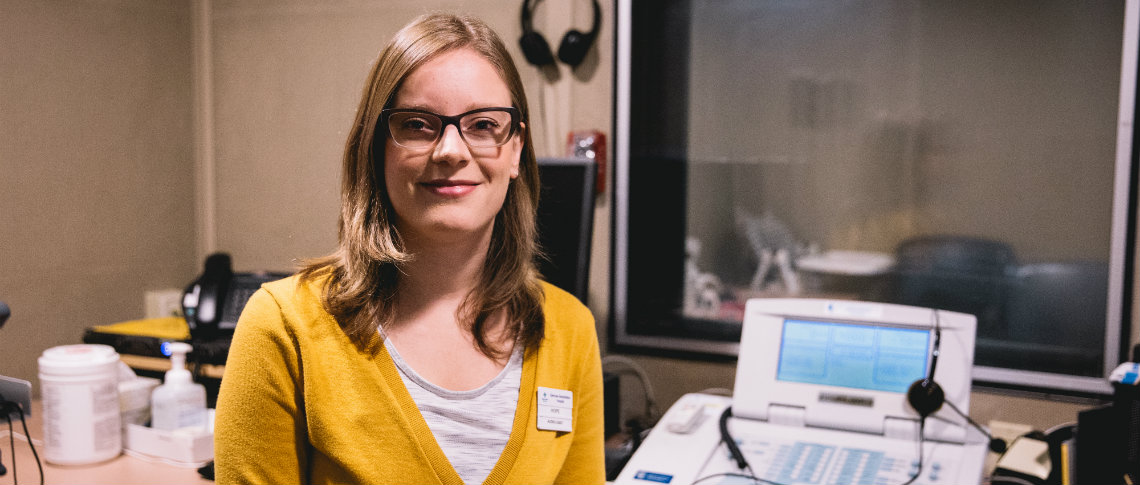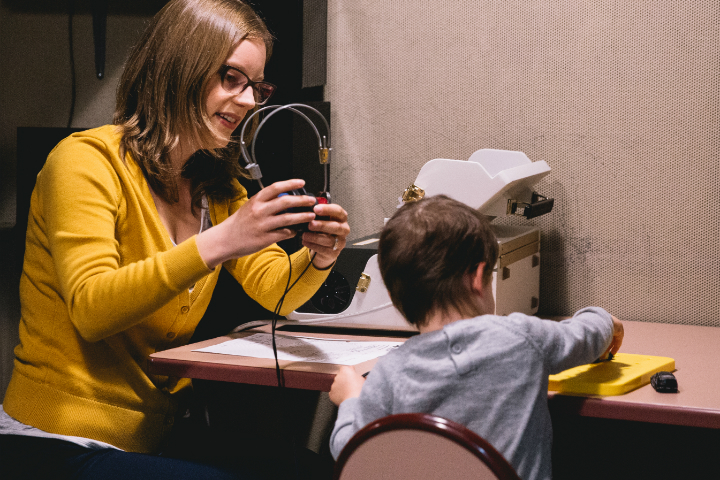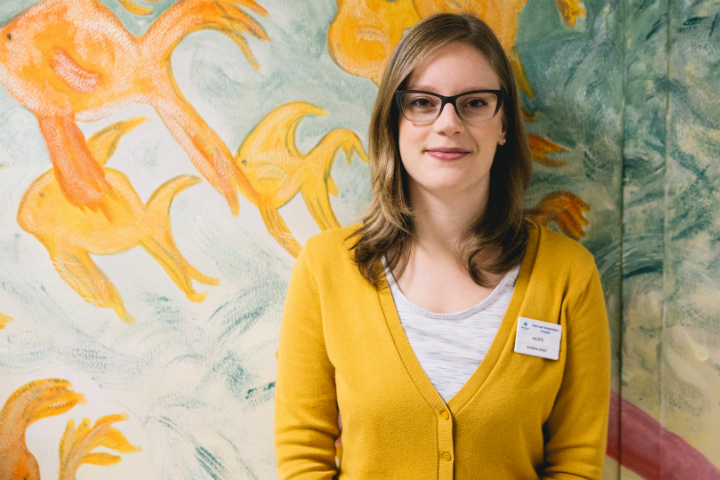

What does your role entail?
An audiologist specializes in hearing and balance disorders. They assess hearing and balance, and provide treatment and consultation to individuals of all ages. In my job specifically, I focus on pediatric diagnostic audiology. I work exclusively with infants and children. A significant portion of my role is diagnosing hearing loss and supporting intervention as early as possible.
With the recent launch of the Early Hearing Detection Intervention (EHDI) Program across Alberta, audiologists are identifying hearing loss as early as possible in a child’s life so that intervention services can be offered as early as possible in a child’s development. The goal of the comprehensive EHDI Program is to provide timely intervention to optimize language, development and overall health outcomes. Detecting hearing loss early helps close the developmental gaps between a child with hearing loss and their normal-hearing peers. In helping close the gaps, we’re able to make a big difference.
What is the most interesting part of your job?
I think the most interesting part of my job is being able to assess an infant’s hearing. You can’t ask an infant what they’re hearing. In audiology, we use innovative tools that allow us to determine exactly what an infant is hearing or not hearing. For example, when we use an Auditory Brainstem Response assessment, we ask parents to bring their baby tired and hungry, and ready to sleep. This is quite a tall order, for both the parent and new baby, but with a sleeping baby we can measure hearing sensitivity with a high degree of accuracy.
How does this job differ between the public and private sector?
In Alberta, public sector audiologists focus more on the screening, diagnostic and surveillance aspects of audiology, while private practice audiologists generally focus more on hearing aids and other assistive listening technologies. There is certainly overlap between the two and audiologists in both sectors collaborate to optimize hearing health care.
How would you describe your team?
My team is fantastic. We are a group of really talented audiologists. Everyone has their own area of interest, and we really learn and grow together. Audiologists are also part of multi-disciplinary teams. We work with psychologists, speech language pathologists, occupational therapists – the list goes on.
What attracted you to work in healthcare?
I wanted to do something meaningful. I wanted to be able to help people on a daily basis and I think I’m doing that as an audiologist, which is really neat. I kind of fell into audiology. It’s sort of a lesser-known sibling of speech pathology, which is actually where I started my education. When I was a student in the speech pathology master’s program, I minored in audiology, and that is really what exposed me to the profession. I then quickly fell in love with everything to do with audiology.


What type of person would excel in this role?
Someone who doesn’t tire of learning, always wants to discover new things, and enjoys variety. Day-to-day I’m always learning. When I talk to someone who has been practicing audiology for years, they tell me the same thing – they’re still learning. I tend to get bored easily, but there’s so much variety in audiology, from the patient populations you can work with, to the type of job that you’re doing. Whether it’s diagnostic or rehabilitation work, there’s lots of things to keep you occupied.
What do you love about your job?
One of my favorite parts of my job is being able to see the impacts of a diagnosis that I have made. When I have diagnosed someone as an infant and then I see them in the waiting room, two to three years later, with their parents or siblings and they have their hearing aids in, I can almost forget they have a hearing loss. The patient is running around laughing, talking with their parents, and just being a child – that’s when it really hits home to know what we’re capable of contributing.